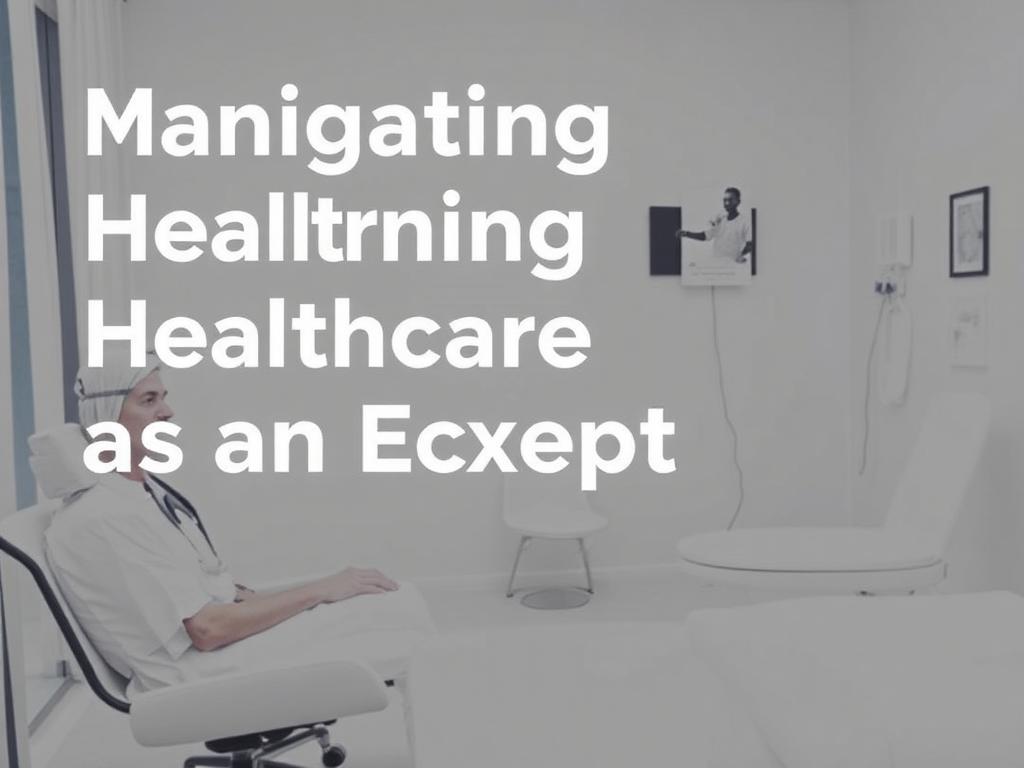Navigating Healthcare as an Expat in Cyprus
Relocating to a new country involves a myriad of logistical and cultural adjustments, with healthcare often being a top priority for expats. Cyprus, as a Mediterranean island known for its warm climate and vibrant culture, attracts a significant number of expatriates each year. However, understanding how to effectively navigate healthcare as an expat in Cyprus requires a clear grasp of the local medical system Cyprus employs, insurance choices Cyprus offers, and the healthcare costs Cyprus residents and foreigners face. This comprehensive guide aims to equip expatriates with practical knowledge to ensure smooth access to medical services and efficient health management on the island.
Understanding the Medical System Cyprus Provides
The healthcare system in Cyprus features a hybrid service model that combines public and private sectors, each serving specific roles and standards. The public healthcare system is primarily managed by the Ministry of Health and is found in most urban and rural regions alike. Public hospitals provide a wide range of services, including emergency care, general medicine, surgery, and specialist consultations. The introduction of the General Healthcare System (GHS), known locally as Gesy, in 2019 marked a pivotal shift toward universal health coverage for all citizens and residents, including registered expats.
Gesy’s implementation means that permanent residents in Cyprus have access to a comprehensive package of healthcare services for a standardized contribution, vastly improving the affordability and accessibility of care. For expats, registration with Gesy is a significant step to securing healthcare benefits equivalent to Cypriot citizens. However, the system also operates alongside a thriving private healthcare sector, which many expats prefer for faster appointments, advanced facilities, and a broader choice of specialists.
Private hospitals and clinics dominate urban centers like Nicosia, Limassol, and Larnaca, where expats often seek medical services. These private institutions tend to offer shorter waiting times and more comfort but come at a higher cost. Understanding this dual structure helps expatriates decide between relying on public services through Gesy or opting for private care based on individual needs, urgency, and financial considerations.
The medical system Cyprus provides blends public and private care, giving expats diverse options tailored to affordability and preference.
How Expats Can Register with Gesy
Registration with Gesy is fundamental for expats intending to benefit from Cyprus’s public healthcare offerings. Eligibility requires those residing legally in Cyprus to apply through the official Gesy portal, presenting documents such as residence permits, identity cards or passports, and proof of address. Registration typically involves selecting a primary care physician from Gesy’s approved list, establishing a continuous healthcare relationship.
Once registered, expats gain immediate access to a wide range of primary and specialist healthcare services, many delivered free or with nominal fees. It’s important to note that while Gesy covers a large spectrum, some services like dental care or certain diagnostic tests may require supplementary payment or insurance. Moreover, administrative bureaucracy can sometimes slow initial registration or specialist referrals, making private healthcare a tempting alternative despite the additional cost.
Joining Gesy ensures expats comprehensive public healthcare access, helping to minimize out-of-pocket medical expenses.
Insurance Choices Cyprus Offers to Expats
Because medical system Cyprus includes both public and private sectors, expats have several insurance options to match their healthcare needs. Basic coverage under Gesy requires a small monthly contribution, but many expatriates choose private medical insurance to broaden their healthcare access, minimize waiting times, and cover services not fully included in the public plan.
Insurance choices Cyprus markets range from local health insurance companies to international providers offering expatriate-specific plans. These policies differ widely in scope, from basic outpatient visit coverage to premium plans including hospitalizations, dental care, maternity benefits, and even medical evacuation services. For expatriates with chronic conditions or families, comprehensive private insurance often proves invaluable.
When selecting insurance in Cyprus, expats must carefully evaluate plan details including policy limits, network hospitals, coverage exclusions, and claims processes. Some private insurers include benefits such as direct billing with private hospitals, removing the need for upfront payments and reimbursement. Meanwhile, certain policies complement Gesy by covering co-payments or specialized treatments not available through the public system.
Choosing the right insurance in Cyprus balances cost with healthcare access and comfort, making it a cornerstone of successful expat healthcare navigation.
Healthcare Costs Cyprus Expats Should Anticipate
Healthcare costs in Cyprus vary significantly depending on whether services are accessed through the public system (Gesy) or privately, and whether the expat holds appropriate insurance. Under Gesy, contributions are income-based and capped, meaning registered expats pay a manageable monthly fee to access extensive care without substantial extra charges for routine services.
In contrast, private healthcare costs Cyprus expats may encounter can be notably higher. A single consultation in a private clinic typically costs between €50 and €150, while more complex diagnostics, hospital stays, and surgeries can quickly escalate into several thousands of euros without insurance coverage. Dental care, mental health counseling, and certain specialty services often fall outside Gesy’s coverage and are fully privatized.
Pharmaceutical costs present another financial aspect for expats to consider. While many prescription medications are subsidized through Gesy, those purchased outside the system can be expensive. Private insurance often helps mitigate these expenses by providing medication coverage and discounts at partnered pharmacies.
| Service Type | Approximate Cost (Without Insurance) | Covered by Gesy? |
|---|---|---|
| General Practitioner Visit | €50 – €100 | Yes (minimal co-pay) |
| Specialist Consultation | €80 – €150+ | Yes (after referral) |
| Hospital Stay (per day) | €300 – €1,000+ | Partially |
| Dental Check-Up | €60 – €100 | No |
| Prescription Medication | Variable | Partially subsidized |
Healthcare costs Cyprus expats face vary widely; smart insurance can be the difference between manageable expenses and unexpected financial burdens.
Finding the Right Healthcare Providers as an Expat
One of the most critical steps in effective expat healthcare navigation Cyprus requires involves identifying trustworthy healthcare providers. Many expats rely on recommendations from established communities, expatriate forums, or local websites to find English-speaking doctors, specialists, and hospitals known for quality care. Cyprus hosts several internationally accredited private hospitals equipped with modern facilities and staff trained to international standards, making them popular choices among expatriates.
Public hospitals, while less luxurious, also offer competent care, and are scattered throughout the island’s urban and regional centers. The choice between private and public providers often depends on urgency, type of care needed, and budget constraints. Petty or routine health issues may be managed adequately via public clinics, whereas complex, elective, or time-sensitive procedures typically warrant private care.
Cultural nuances also come into play. Physicians in Cyprus are generally well-versed in medical English, but learning some basic Greek medical terms or having translation support can improve communication and understanding during visits. Moreover, having a regular general practitioner familiar with the expat’s medical history makes navigating the system more efficient.
Choosing trusted healthcare providers tailored to expats ensures timely, effective care and builds confidence in Cyprus’s medical system.
Emergency Healthcare Access and Protocols
Emergency healthcare in Cyprus is accessible throughout the island, with public hospitals equipped with emergency departments and ambulance services ready for critical situations. The universal emergency number, 112, connects callers to immediate assistance. Expats should familiarize themselves with the locations of the nearest hospitals and clinics offering emergency care upon arrival.
Gesy also covers emergency treatment without prior registration, ensuring that urgent medical needs are addressed without delay. However, private hospitals provide emergency units as well, often with shorter waiting times. Private insurance plans frequently include emergency transport and overseas medical evacuation coverage, an important factor for expats who may find some treatments unavailable locally.
It is essential for expats to carry their health insurance identification and emergency contact information at all times. Preparedness can be crucial when time is of the essence in urgent scenarios, especially while navigating language and procedural differences.
Emergency healthcare in Cyprus is reliable and accessible; knowing the right protocols can save valuable time and stress during critical moments.
Managing Chronic Conditions and Ongoing Care
For expats with chronic illnesses or ongoing healthcare needs, understanding how to maintain consistent treatment in Cyprus is paramount. The medical system Cyprus operates under offers structured follow-up through both Gesy and private specialists. Chronic disease management often involves routine check-ups, medications, laboratory work, and specialist interventions, all of which require stable access and financial planning.
Enrolling in Gesy expedites access to specialist care after referral and allows for subsidized prescriptions. However, waiting times in public care for chronic conditions can be longer than desirable. Private healthcare, combined with insurance choices Cyprus offers, frequently improves access speed and quality of service for ongoing management.
Moreover, patient education, local support groups, and the availability of multidisciplinary teams are evolving areas in Cyprus. Expats managing conditions like diabetes, cardiovascular diseases, or autoimmune disorders benefit from proactive healthcare coordination and communication between primary care physicians and specialists.
Chronic condition management in Cyprus is feasible with careful provider selection and insurance planning, ensuring continuity of quality care.
Utilizing Telemedicine and Digital Health Services
Technological advancements have introduced telemedicine as a viable component of healthcare delivery in Cyprus. Amid global shifts, including those accelerated by the COVID-19 pandemic, several healthcare providers now offer remote consultations, follow-up care, and electronic prescriptions. This innovation simplifies access for expats who might face language barriers, mobility issues, or scheduling conflicts.
Many private insurance plans Cyprus include telehealth services, expanding coverage beyond face-to-face visits. Digital health platforms complement traditional care models by allowing electronic health records, appointment scheduling, and personalized health management tools. However, awareness of the system’s limitations—such as restrictions on emergency care or physical examinations—is important for expats utilizing these services.
Telemedicine is reshaping expat healthcare navigation Cyprus, offering convenience and continuity in a digitally connected era.
Adapting to Cultural and Language Differences in Healthcare
While Cyprus has a well-developed healthcare infrastructure, cultural and linguistic differences can pose challenges for expatriates. Greek and Turkish are the official languages, with English widely spoken in medical contexts, especially in private facilities. Nonetheless, medical vocabulary and nuances sometimes cause communication gaps, underscoring the importance of patience and preparation.
Expats who take the time to learn basic medical terms in Greek or seek providers fluent in English improve their engagement in care. Interpreters exist but may not be readily available everywhere, particularly in smaller towns or public facilities. Understanding local customs related to medical appointments, patient confidentiality, and decision-making can also help align expectations and avoid misunderstandings.
The healthcare staff in Cyprus generally demonstrate professionalism and empathy, but proactive communication by expats greatly enhances the overall healthcare experience and outcomes.
Embracing cultural and language awareness empowers expats to navigate Cyprus’s healthcare with greater confidence and comfort.
Your Lifeline: Mastering Healthcare as an Expat in Cyprus
Navigating healthcare as an expat in Cyprus requires a strategic approach that balances knowledge of the medical system Cyprus uses, insight into insurance choices Cyprus offers, and awareness of healthcare costs Cyprus professionals impose. Registering with the public health system Gesy offers foundational coverage and protects against significant financial exposure, while private healthcare and insurance ensure flexibility and premium options.
From emergency situations to chronic care management, Cyprus’s hybrid healthcare structure provides options but demands preparation and adaptability from expats. Understanding the procedural, cultural, and financial dimensions of healthcare on the island enables expatriates to make informed decisions, improving both their physical well-being and peace of mind.
Ultimately, successful healthcare navigation in Cyprus empowers expats to enjoy the benefits of their new home, knowing that quality medical care is accessible, affordable, and responsive to their unique needs.
Frequently Asked Questions (FAQs)
-
How do I register for the Cyprus General Healthcare System (Gesy) as an expat?
Expatriates can register with Gesy by applying through the official Gesy online portal, submitting proof of legal residence, ID, and selecting a primary care physician from the approved list. Registration grants access to public healthcare services.
-
Is private health insurance necessary if I am registered with Gesy?
While Gesy covers many services, private insurance is often recommended for faster access, coverage of services outside Gesy, and enhanced comfort, particularly for elective procedures or specialized care.
-
What are the typical healthcare costs without insurance in Cyprus?
Private consultations range from €50 to over €150, hospital stays can exceed €300 per day, and some services like dental care are fully private, making costs variable and sometimes high without insurance.
-
Can I access emergency care without health insurance?
Yes, emergency healthcare in Cyprus is available to everyone, regardless of insurance status, and is covered under Gesy for registered individuals or offered at private hospitals at cost.
-
Are there English-speaking doctors available in Cyprus?
Many doctors, especially in private clinics and urban areas, speak English. Expats are advised to seek providers recommended by expatriate communities or look for those explicitly advertising English proficiency.
-
Does Cyprus offer telemedicine services for expats?
Yes, telemedicine is increasingly available, primarily through private providers and some insurance plans, allowing remote consultations and follow-ups for convenience and continuity.
-
How do the healthcare costs in Cyprus compare to other European countries?
Healthcare costs in Cyprus are generally lower than in Western Europe but can be higher than in Eastern Europe. Public healthcare via Gesy reduces costs significantly for registered residents.







